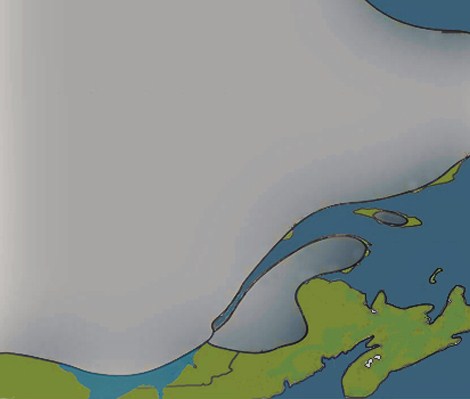Forest ecosystems
What's a forest ecosystem? It is, on a well-defined territory, a specific mix of living communities, of trees and understory plants, of animals and insects. But it is also today's result of a historical evolution. To describe a natural ecosystem is to take a still frame of a constantly evolving system. Ecosystems are the sum of all the events that led to their creation: the recent past, marked by Man's influence, and the distant past, marked by glacial eras, continental drift, and mass extinctions. And the mutations of today's ecosystems will be the heritage of tomorrow's ecosystems.
Deciphering the past to understand the present
During the last 1.8 million years, Quebec was covered, 80 to 90% of the time, by a thick ice sheet. At that timescale, the dense conifer forests and Quebec's maple forests as we know them today are the exception, not the norm. But, each hundred thousand years, the temperature goes up, glaciers withdraw, and plants recolonize the higher latitudes. At least, until the next ice age. To make sense of Quebec's contemporary ecosystems, we must follow them back to their origins.
Videoclip Transcription
Back





